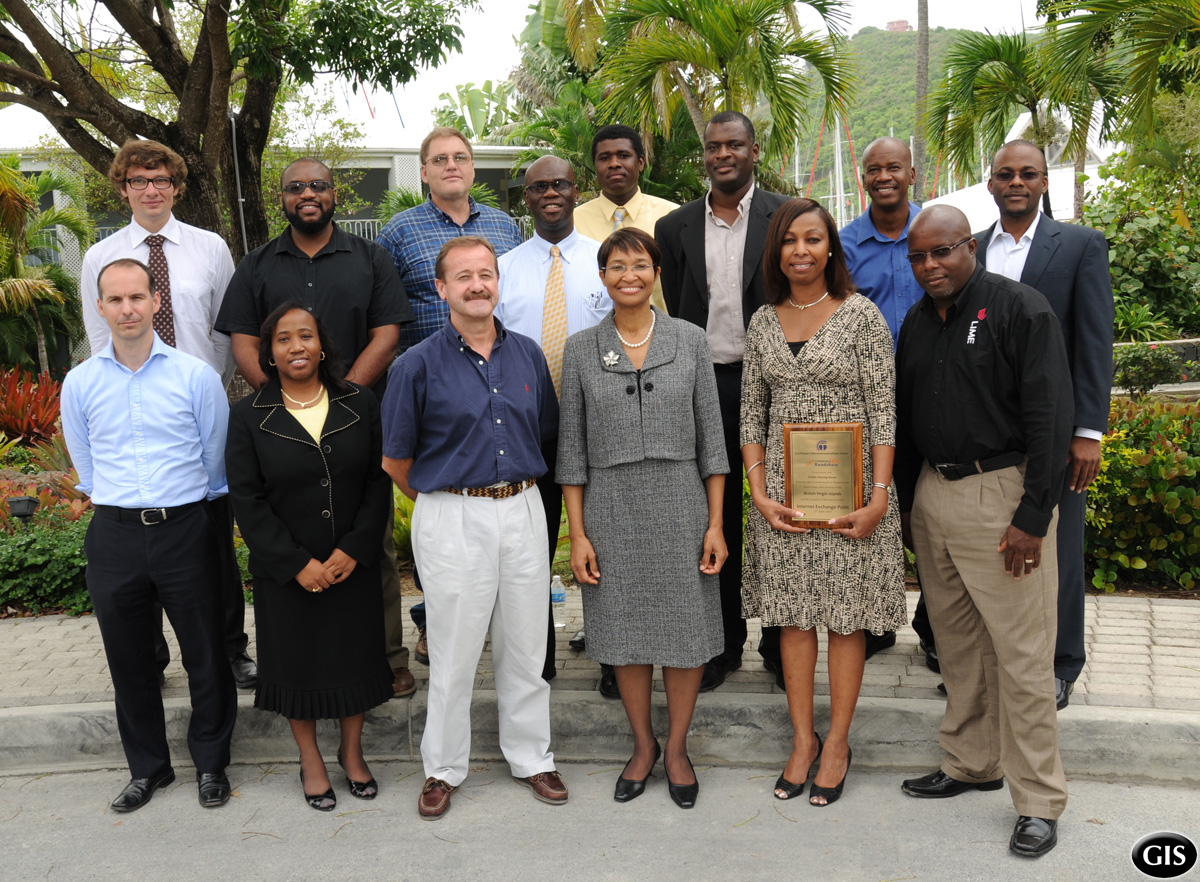British Virgin Islands launches Internet Exchange Point
 Accessing locally hosted sites and files over the Internet has gotten a lot better for Internet users in the British Virgin Island since the launch of the BVI Internet Exchange Point (IXP) on June 4, 2011. Internet users in the BVI can now take advantage of new opportunities for the development local Internet services with the launch of BVI-IX.
The British Overseas Territory became only the second country in English-speaking Caribbean to establish the facility. The BVI-IX now keeps domestically-bound Internet traffic from the local Internet Service Providers (ISPs) LIME and CCT Global Communications within the BVI instead of inefficiently routing overseas as currently happens in countries that have no Internet Exchange Points established.
Accessing locally hosted sites and files over the Internet has gotten a lot better for Internet users in the British Virgin Island since the launch of the BVI Internet Exchange Point (IXP) on June 4, 2011. Internet users in the BVI can now take advantage of new opportunities for the development local Internet services with the launch of BVI-IX.
The British Overseas Territory became only the second country in English-speaking Caribbean to establish the facility. The BVI-IX now keeps domestically-bound Internet traffic from the local Internet Service Providers (ISPs) LIME and CCT Global Communications within the BVI instead of inefficiently routing overseas as currently happens in countries that have no Internet Exchange Points established.
At a signing ceremony in Roadtown, Tortola marking the launch of the BVI-IX , Tomas Lamanauskas, Chief Executive Officer of the Telecommunications Regulatory Commission (TRC), said, “This is a significant development for the BVI. LIME and CCT have signed an historic agreement to exchange local traffic at no cost to each other. This means less Internet traffic will have to go off-island.”
He added: “It also means that the ISPs can recover the international capacity that was used to transport domestic traffic. This will result in more efficient and cost-effective use of their data networks, and should translate into improved quality of service for customers.”
The IXP’s development was two years in the making, with the Minister of Communications and Works, Mr. Julian Fraser, spearheading the push when he declared his intention to create new Internet-based opportunities for BVI consumers and businesses in 2009. The process was a collaborative effort between the BVI ISPs, LIME and CCT Global Communications; the BVI Government; the Caribbean Telecommunications Union; and Packet Clearing House, a non-profit organisation that helps countries set up IXPs.
Bevil Wooding, an Internet Strategist with Packet Clearing House, played a central role in the process, providing advice and facilitating training workshops for the BVI technical community. Wooding, one of the main advocates for IXP proliferation in the region said, “The BVI has joined the growing ranks of Caribbean countries which recognize that domestic internet traffic exchange is essential for developing secure, efficient domestic Internet content, applications, and most important, economic activity.”
Wooding added, “Recent events, such as the tragic earthquake in Haiti, have underscored the imperative for Caribbean countries to take decisive steps to strengthen their Internet infrastructure. A properly constituted domestic IXP can allow territories to maintain important local connectivity in times of disaster or when international links are compromised.”
Bernadette Lewis, Secretary General of the Caribbean Telecommunications Union, stated, “It is good to see that the Minister Frasers’s vision to establish this facility, so important for resiliency and quality of the BVI’s Internet networks, has finally been realized. The spirit of cooperation, demonstrated by the stakeholders throughout, establishes a firm ground for the country to continue moving forward and to realize the expected benefits for its citizens.”
Despite the many benefits associated with an IXP, several Caribbean countries have faced critics who said the markets in the region were too small to host their own traffic, according to Ms. Lewis. She added that those arguments were quite similar to ones made against the liberalisation of the regional telecommunications market in the nineties.
“Look at us now in the BVI. There are several competitors operating in this very, very small market. But even as we hear the arguments of why there shouldn’t be IXPs in the Caribbean, we’ve heard the merits of innovators and potential entrepreneurs who’s fledgling high-tech services are being stymied by the current Internet routing challenges,” she said.
Her sentiments were echoed by Arlene Smith-Thompson, acting Permanent Secretary in the Ministry of Communications and Works. Ms. Smith-Thompson said the new IXP will bring economies of scale that will strengthen the territory’s communications infrastructure and allow for future development.
“The Virgin Islands has now been placed on the global Internet map where we can now compete with the best providers regionally and internationally in a telecommunications industry that is constantly evolving,” Smith-Thompson said.
Opportunity beckons the BVI as it moves to take full advantage of the new IXP with local video and audio streaming, VoIP, domestic data backup, new e-government services, distance learning, e-health and other applications that depend on local traffic exchange.
The BVI has joined Grenada, St Maarten, Curacao and Haiti as Caribbean countries that have established Internet Exchange Points. Dominica and St Kitts & Nevis are also actively engaged in establishing domestic IXPs. The Caribbean Telecommunications Union and Packet Clearing House have collaborated to create regional awareness, deliver training programs and provide technical and strategic advice to ISP and governments through the Caribbean ICT Roadshow.
Wooding put it succinctly when he said, “The vision of being able to properly deploy local Internet-based applications and services is now a reality for the BVI. Now, the same leadership, collaboration and determination that got us to this point must be applied to keep us moving onward. The journey has only just begun.”
Related links:
New IXP could mean business opportunities (BVI Beacon)
TRC brings local Internet service competitors together for launch of IXP (BVInews.com)




